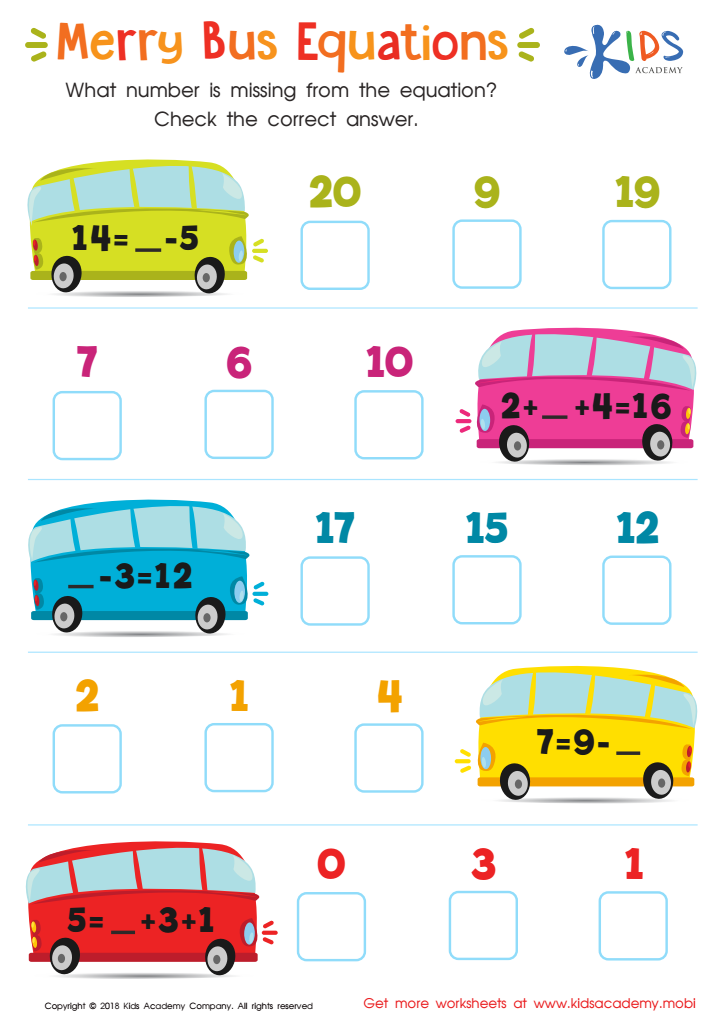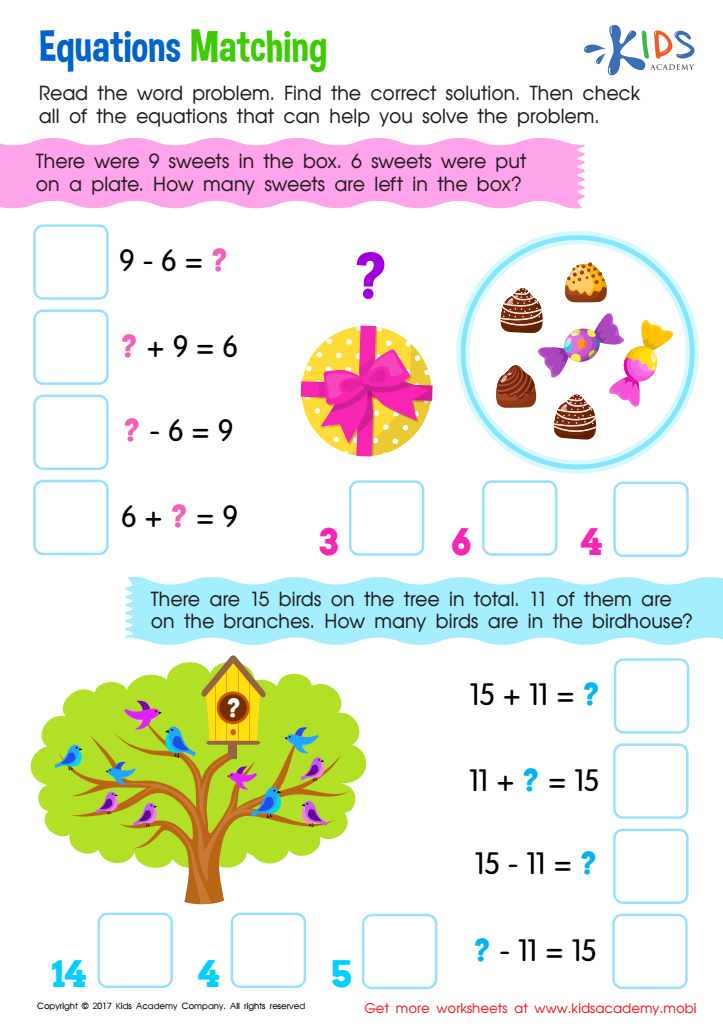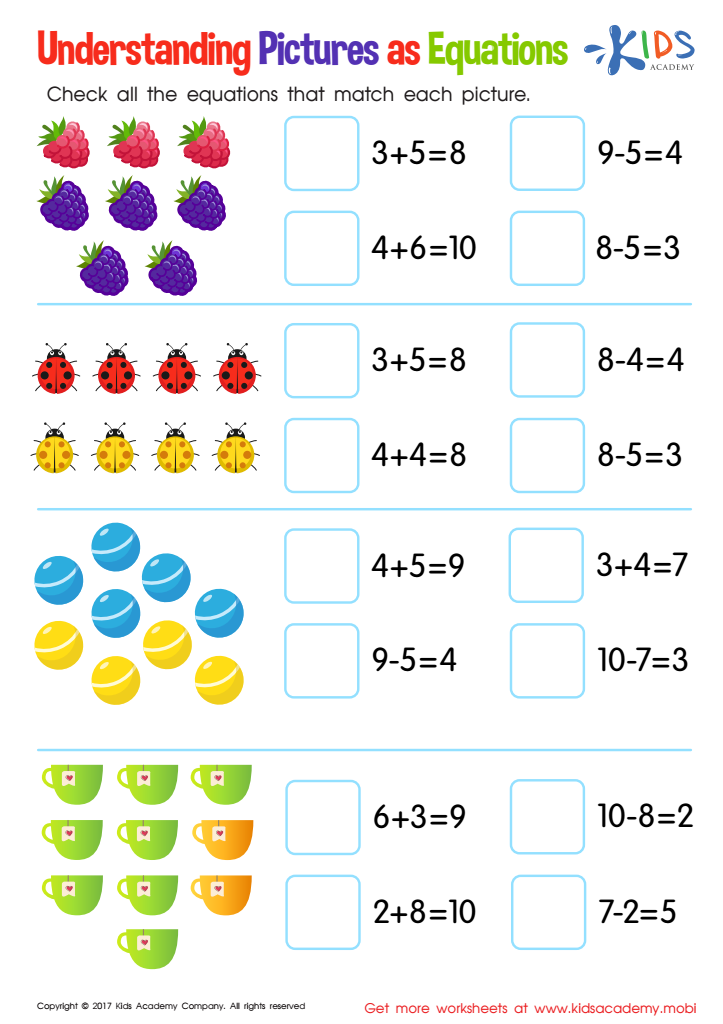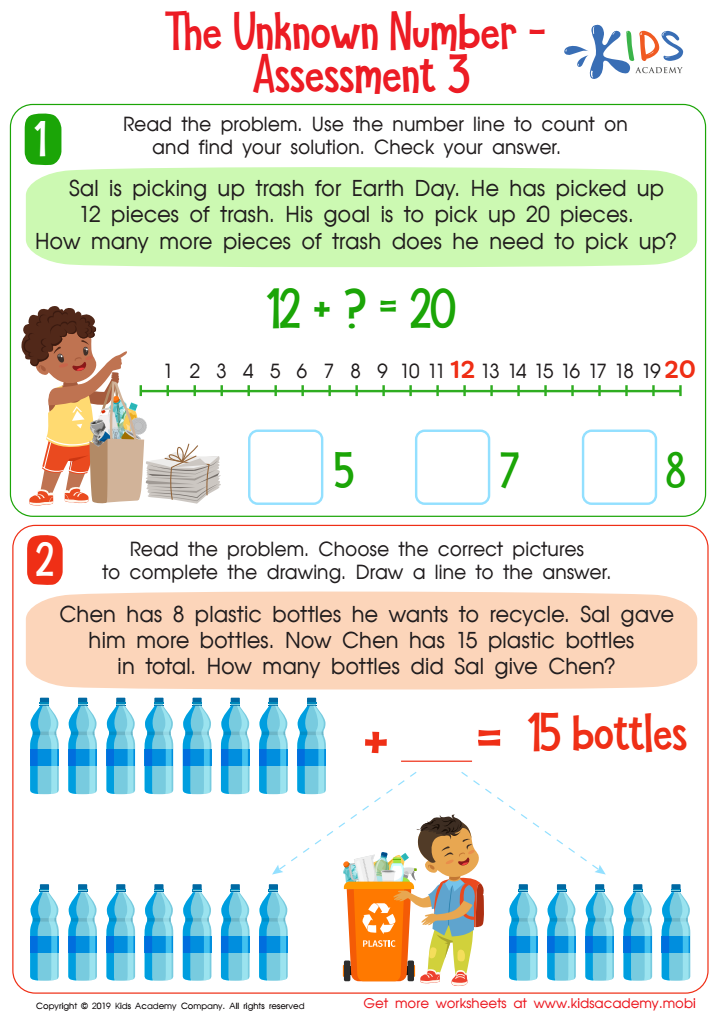Understanding equations Addition & Subtraction Worksheets for Ages 3-7
7 filtered results
-
From - To
Jumpstart your child's journey into mathematics with our "Understanding Equations: Addition & Subtraction Worksheets for Ages 3-7." Designed specifically for young learners, these engaging, colorful worksheets introduce foundational math concepts through fun and interactive activities. By exploring simple equations, children will enhance their problem-solving skills, develop a strong number sense, and build confidence in their math abilities. Perfect for at-home practice or classroom use, these worksheets support early education curricula, making learning both enjoyable and effective. Help your child master the basics of addition and subtraction and lay the groundwork for future math success today!


Merry Bus Equations Worksheet


Equations Matching Word Problems Worksheet


Understanding Pictures as Equations Worksheet


The Unknown Number - Assessment 3 Worksheet
Understanding equations involving addition and subtraction for ages 3-7 is essential for young children as it forms the foundation for their future math learning and cognitive development. At this early age, children's brains are highly receptive and are building the neural connections necessary for more complex problem-solving and critical thinking skills. Introducing basic math concepts helps them develop numeracy skills, which are crucial not only in academic settings but also in everyday life.
For parents and teachers, focusing on addition and subtraction can promote a positive attitude toward math, laying the groundwork for a lifelong interest and competence in the subject. Early exposure to these concepts can also enhance a child's ability to grasp the principles of counting, measuring, and comparing quantities, which are integral to many aspects of learning and daily activities.
Moreover, proficiency in basic arithmetic can boost a child’s confidence and promote a sense of achievement. This, in turn, fosters a positive learning environment and reduces math anxiety, which can be a barrier to academic success later on.
By integrating fun, engaging activities that incorporate addition and subtraction into a child's daily routine, parents and teachers can create an enriching learning experience that encourages curiosity and a desire to learn more. Building these essential skills early on sets the stage for academic success and a love of learning.
 Assign to My Students
Assign to My Students




















